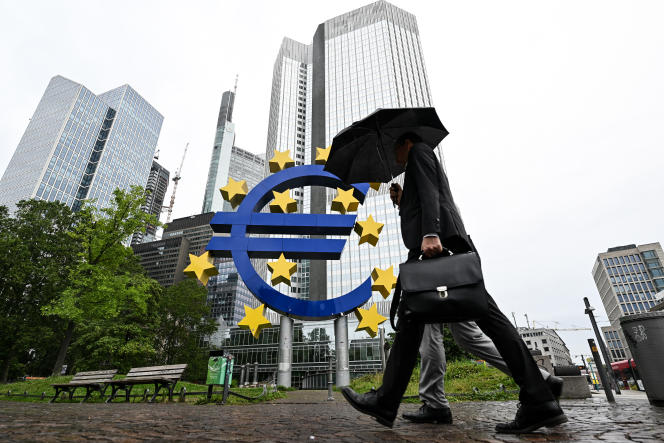We must accelerate the expenditure necessary for the climate transition, called, Wednesday, September 6, the European Central Bank (ECB). According to the monetary institution, it is not only about controlling the environment, to hope to limit global warming, but also about the economy. The ECB has published its second “stress testing” after a first version in 2021, and it comes to similar conclusions: if investing in the transition now is expensive, waiting will end up costing even more.
“Procrastinating may be easier and cheaper today, but it means paying a higher price tomorrow: the damage to our environment and our economies from higher temperatures would be (SO) more important », notes its vice-president, Luis de Guindos. The stress tests nevertheless conclude that in all scenarios, even the most optimistic, the economy will suffer from the climate impact, companies will lose profitability and banks will suffer more losses.
The ECB has worked on three scenarios covering the period 2023 to 2030. The first, which would make it possible to meet the commitments aimed at limiting global warming to 1.5 degrees, is a “accelerated transition” compared to current expenditure, with investments that would double within three years, amounting to a total of 3,200 billion euros (just over a year of French GDP) by 2030.
Impact on households
The second, called “late effort”, envisages a certain immobility of climate policies until 2026 then a sudden acceleration, leading to the same total of investments, simply less distributed over time. The third is a “postponed transition”where states fail to deliver on their greenhouse gas reduction promises, going on a 2.6 degree warming trajectory.
This last scenario still includes 2,500 billion euros of investments, since even in this hypothesis, significant expenditure on renewable energies, electrification of the economy and other housing insulations are carried out.
The report does not publish an easily comparable definitive figure (eg a cost in shares of GDP) between the three scenarios. But, sector by sector, it gives a good overview of the magnitude of the shock to come.
For the first time, it notably calculates the impact on households. Either way, their gas and electricity bills are expected to rise. In the script ” accelerated “, with very significant investments in renewable energies (a quadrupling of capacities is planned!), they should increase by 10% by 2025 (all other things being equal). But then they would stabilize: running renewable energies is not expensive, and better insulation would reduce energy consumption.
You have 48.22% of this article left to read. The following is for subscribers only.
